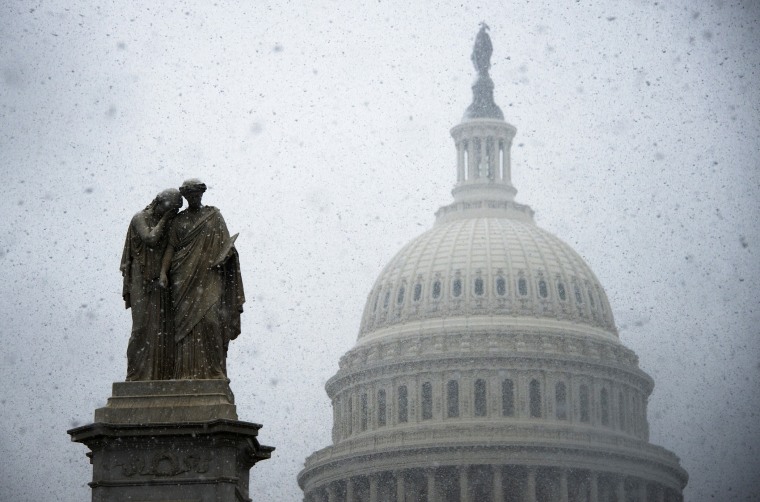Perhaps Republicans thought the polling on their tax plan would improve as the debate continued to unfold. If so, GOP officials are probably disappointed right now.
FiveThirtyEight ran an interesting report yesterday describing the Republican scheme as "historically unpopular."
Senate Republicans' effort to pass tax reform is at a crucial juncture. As some senators waffle on whether to support the bill, they may want to spare a glance toward public opinion: Poll after poll shows that more voters than not are opposed to their efforts. In fact, the GOP bill is one of the least popular tax plans since Ronald Reagan's day.About a third of voters currently support the Republican tax reform package, according to an average of five surveys released this month. In a Quinnipiac University survey, just 25 percent of voters approved of the plan. Surveys from ABC News/Washington Post, CNN, Morning Consult and YouGov put approval of the plan slightly higher, but all are still at 36 percent or lower. Meanwhile, an average of the five polls puts opposition at 46 percent.
There's no great mystery here: Americans generally believe the GOP plan will direct the bulk of the benefits to the rich, which happens to be true. There's also ample polling that shows the public supporting higher taxes on big corporations, which is the polar opposite of what Republicans have in mind.
But what I found especially interesting in the FiveThirtyEight analysis was the comparison between support for the Republican tax plan this year and the polling on the most recent major plans to raise taxes.
The piece explained, for example, that only 41% of Americans endorsed the George H.W. Bush's plan for tax hikes in 1990. A few years later, support for Bill Clinton's plan to raise taxes in 1993 was even lower. (Both plans ended up passing anyway.)
But this year, the tax plan backed by Donald Trump and congressional Republicans is even less popular than those recent efforts. In other words, we're looking at the first modern example of a package of tax cuts enjoying less support than proposed tax increases.
It's against this backdrop that GOP policymakers are convinced that ramming through an unpopular plan will make them more popular. As we discussed a month ago, Republicans are working from the assumption that if they ignore popular will, they’ll be rewarded by the voters whose wishes they’re ignoring.
I’m certainly aware of the broader circumstances: Republicans have made massive tax breaks for people who don’t need them the centerpiece of their governing agenda, and if they fail, GOP officials fear looking inept. Republicans understandably believe they’ll need some kind of accomplishments ahead of the 2018 midterm elections to show they didn’t spend two years failing on one priority after another.
But while GOP leaders may not want my advice, here’s a radical thought: to curry favor with voters, perhaps Republicans could work on goals Americans actually like?
